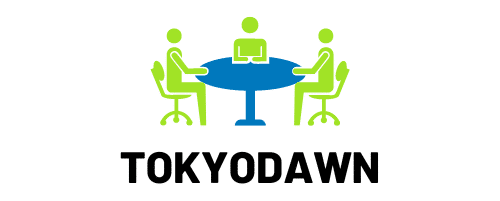In a world where technology is at the forefront of most operational activities, property management is no different. Leveraging technology in the real estate sector can lead to increases in tenant satisfaction and retention. This article will explore the innovative ways in which technology-driven property management can boost tenant satisfaction and retention.
Using Property Management Software for Enhanced Efficiency
At the heart of technology-driven property management is property management software. These tools can elevate your management efficiency, streamline processes, and significantly enhance the tenant experience.
A voir aussi : How to balance heritage preservation with modern development in real estate projects?
Property management software allows landlords and property managers to digitize their operations. From online rent collection to maintenance requests, these tools turn several labor-intensive tasks into a few clicks of a button. This not only saves time for property managers, but it also makes the rental experience smoother for tenants.
For instance, tenants can pay their rent online, at any time of the day, without the need to meet the property manager in person. This is a convenient feature that most tenants appreciate. Apart from rent collection, property management software can automate other tasks such as tracking expenses, creating financial reports, screening tenants, and managing leasing contracts. This can lead to a more professional and seamless property management operation.
Cela peut vous intéresser : What are the best approaches to real estate market analysis for predictive investment?
Moreover, software solutions can also handle maintenance requests effectively. Tenants can submit their maintenance requests through the platform, and property managers can track and manage these requests efficiently. This way, tenants don’t have to wait for days for their issues to be addressed, leading to an increase in their satisfaction and likelihood to renew their lease.
Smart Property Technology for Improved Tenant Experience
The second aspect of technology-driven property management revolves around smart property technology. The advent of smart homes has revolutionized the way tenants interact with their living spaces, and in turn, has affected their rental decisions.
Smart property technology includes smart locks, thermostats, lighting, and security systems, among others. These features allow tenants to control various aspects of their homes remotely, leading to increased convenience and comfort. For instance, a tenant can adjust the temperature of their home from their workplace or check who is at the door without getting up from the couch.
In addition, smart technology can also translate into energy efficiency, leading to lower utility bills for tenants. This not only enhances tenant satisfaction but also can appeal to environmentally conscious renters.
Furthermore, when a property is equipped with smart technology, it signals to potential tenants that the landlords or property managers are committed to providing a modern and comfortable living experience. As a result, it can increase the property’s attractiveness, leading to increased tenant retention and satisfaction.
Leveraging Data for Personalized Tenant Engagement
A major game-changer in technology-driven property management is the use of data. Data-driven strategies can help property managers make informed decisions, predict trends, and personalize their tenant engagement efforts.
Through various digital tools, property managers can collect, analyze, and interpret data related to tenant behavior and preferences. For instance, data about payment history can help identify tenants who are consistently late in paying rent. Property managers can use this information to send personalized reminders or offer flexible payment options to such tenants.
Moreover, data about maintenance requests can provide insights into recurring issues in the property. By addressing these issues proactively, property managers can enhance the living experience of tenants and increase their satisfaction.
The Role of Digital Communication in Tenant Retention
In this digital age, communication has become easier and more efficient. Property managers can leverage various digital channels to communicate with their tenants effectively and promptly.
Emails, text messages, and instant messaging apps can be used to send important announcements, reminders, and updates to tenants. This eliminates the need for physical notices and ensures that the information reaches the tenants quickly and reliably.
Furthermore, digital communication channels can also serve as a platform for tenants to voice their concerns or complaints. By responding to such messages promptly, property managers can address tenant issues effectively, leading to an increase in tenant satisfaction and retention.
The Impact of Technology on Property Management
To sum it up, technology has fundamentally changed the landscape of property management. By adopting technology-driven strategies, property managers can streamline their operations, offer a personalized tenant experience, and communicate effectively with their tenants. As a result, they can enhance tenant satisfaction and retention, making their properties more attractive and profitable in the long run.
Incorporating Data Analytics for Effective Decision Making
Data analytics is a burgeoning field that holds immense potential for transforming property management. It equips property managers with vital insights that can significantly influence decision-making processes and allow for more efficient operations.
Through strategic data collection from various digital touchpoints, property managers can gain a comprehensive understanding of tenant behaviors, preferences, and needs. This information can help property owners make informed decisions about property upgrades, rent pricing, promotional initiatives, and more.
For instance, property managers can analyze data related to utility usage to implement predictive maintenance. This proactive approach helps in identifying potential issues before they escalate, ensuring that regular maintenance is conducted and breakdowns are minimized.
Another excellent example of data-driven decision making is in the realm of rent collection. By studying payment patterns, property managers can promptly identify tenants who might be struggling with payments. They can then provide flexible payment options or send personalized reminders, thereby improving the tenant experience while maintaining a steady flow of rental income.
Ultimately, the use of data analytics empowers property managers to make decisions that are rooted in real-time insights, thereby enhancing tenant satisfaction and increasing retention rates.
Virtual Tours: A Game-Changer for Real Estate Viewing
In recent times, virtual tours have emerged as a revolutionary technology in real estate viewing. This technology provides potential tenants with the ability to tour a property remotely, thus saving them time and making the viewing process more convenient.
Virtual tours offer a comprehensive 3D view of a property, allowing tenants to explore every corner of a prospective home without physically being there. This feature has become particularly important in today’s world where social distancing practices are encouraged.
Moreover, virtual tours have also proven to be beneficial for property managers. They can showcase their property to a wider audience, increasing the chances of finding a suitable tenant. It also reduces the frequency of in-person showings, thereby saving time for both the property managers and potential tenants.
By implementing virtual tours, property managers can provide a unique and innovative tenant experience that sets them apart from traditional management companies. This can lead to higher tenant satisfaction, increasing the likelihood that tenants will opt to renew their leases.
Conclusion: Embracing Technology for Superior Property Management
In conclusion, the integration of technology in property management is no longer a futuristic concept but a present-day reality. Whether it’s property management software, smart home technology, data analytics, or virtual tours, each technological advancement offers a unique way to enhance the overall tenant experience.
By adopting these technologies, property managers can streamline their operations, improve decision-making processes, and provide valuable amenities to tenants. This not only enhances tenant satisfaction but also fosters a sense of loyalty, thereby increasing tenant retention.
Indeed, the future of property management lies in technology. Property managers who recognize and embrace this will be poised to offer unparalleled service to tenants, making their properties more attractive and ultimately more profitable.











